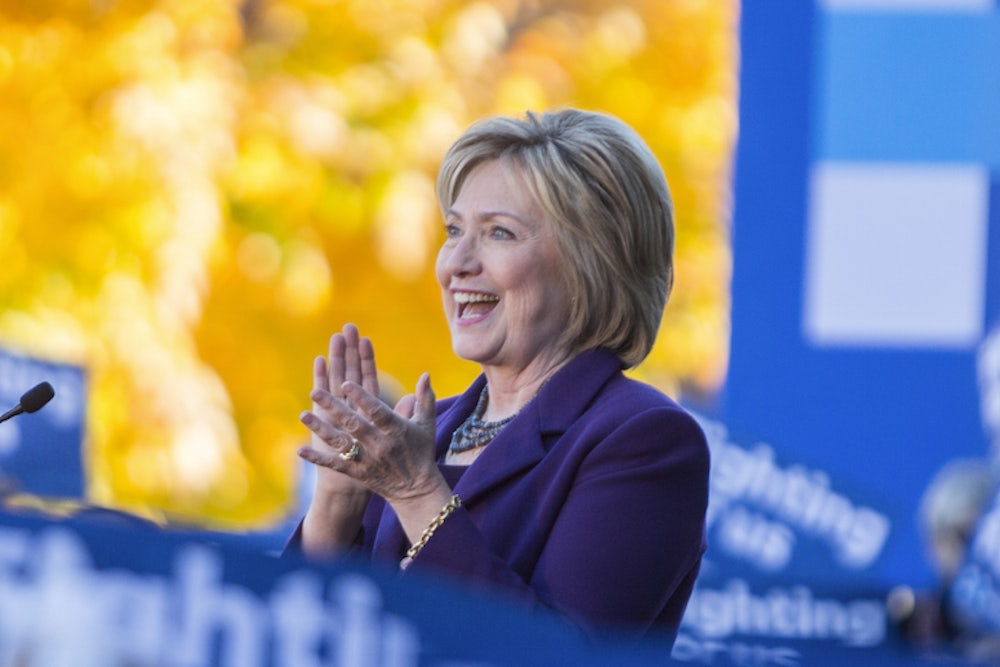The 2016 presidential primaries were originally heralded for the number of talented, credible candidates with a plausible path to the presidency.
After several months, four Republican debates, and two Democratic debates, it is striking just how wrong that assessment was. There are 18 declared Republican and Democratic candidates: 15 in the Republican primary, three in the Democratic primary. The contrast between the Democratic and Republican fields is difficult to characterize because the incentives controlling Republican politics have both caused the field to swell, and driven most of its candidates to adopt deeply unpopular policy positions.
But lump all 18 together and it’s striking how many are outright unqualified to be president, and how only one—Hillary Clinton—has mastered issues in every substantive realm, and already resembles a president.
There are a few—a precious few—Republican candidates who seem temperamentally suited to the presidency, and both Bernie Sanders and Martin O’Malley likewise are clearly hinged enough to not let the presidency completely overwhelm them.
But Clinton, for all her flaws, is at least a cut above all of them. This comes across not just when she performs well, but even when she panders or makes demonstrable errors, as she did Saturday evening.
Clinton went below board at least three times during the debate. Clinton deflected Sanders’s valid, fundamental critique of her appeal to finance and other well-heeled influence peddlers with non-sequitur references to her female donors and 9/11. She blithely confessed to an expansive view of the authorization Congress passed in 2001 to empower the president to use military force against the perpetrators and abettors of the attacks on the World Trade Center and Pentagon. And she criticized Sanders’s health care proposal for being to susceptible to Republican meddling at the state level—when the Affordable Care Act, which she supports, has been badly hampered by federalism.
Those were dim moments. But they were were exceptions to her granular substantive fluency and general unwillingness to lock herself into politically expedient but long-run unsustainable positions—a tendency that defines the Republican Party.
Both Sanders and O’Malley support increasing the minimum wage to $15 an hour nationwide. It would be easy for Clinton to join them. It would take an issue out of her opponents’ hands. But Clinton defends her view that the minimum wage should be $12 an hour, indexed to inflation, while supporting local efforts in more affluent states and municipalities to increase it beyond that, and to supplement wages with an expanded earned income tax credit.
This is not the most popular position on the left. But it is prudent. Clinton’s guru on this issue is Alan Krueger, a pre-eminent liberal labor economist and former chair of President Obama’s Council of Economic Advisers. His view is that a $15 minimum wage is untested globally, and could harm less wealthy communities. When Clinton cited him on Saturday night, O’Malley attacked her, baselessly, for vouchsafing “Wall Street economists.” Clinton stood her ground, and demonstrated a mastery of the economic debate that her rivals lack.
By virtue of her four year tenure as secretary of state, Clinton is just incomparably briefed on foreign affairs. In terms of sheer factual and systemic knowledge, the contrast between Clinton and the other Democratic candidates is occasionally painful. Friday’s terrorist attacks in Paris compelled an unanticipated emphasis on international security issues, and it did not flatter her opponents.
In the seven years since Obama’s election, Republicans have been able to reconstitute their party, but its aspiring leaders have all supplicated themselves to the reactionary base of the party to such an extent that none can claim to speak for the broad majority of the country. At the same time, Democratic ranks have dwindled, leaving them with a serious paucity of credible leaders at a critical moment. But they have one.
